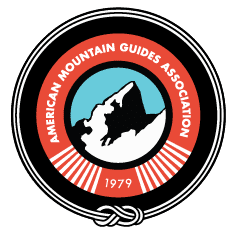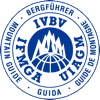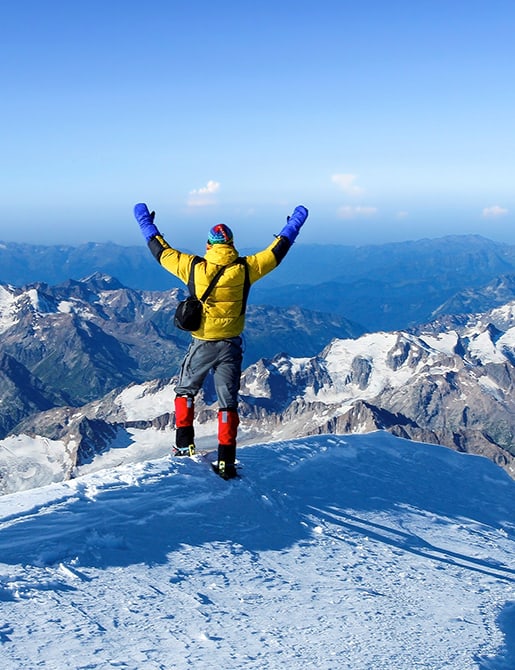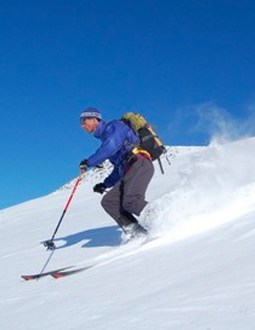


This course will give you a solid introduction to all aspects of classic mountaineering in the best venue in the lower 48 states, North Cascades National Park. The immediate access to moderately crevassed glaciers, steep climbing on great rock and exposed ridge travel make the Boston Basin area the ideal setting for a mountaineering course.
The terrain of the North Cascades National Park is the best all round mountaineering course location in the lower forty-eight states. The course objective is to introduce you to all aspects of mountaineering. The terrain provides a perfect classroom and the small client to guide ratio allows for movement-based learning in relevant terrain. We will set up base camp in the Boston Basin area and conduct our course from there. This in-depth introduction into the world of mountaineering will get you ready for many of our other guided programs or personal climbing adventures all over the world.
Why Pro Guiding Service: We have been a concessionaire in North Cascades National Park for almost 15 years with a perfect safety record. We offer a small participant to instructor ratio at 3:1 and 6:2 max. This is a very important factor in being able to tailor the program to the participants' needs. A relatively small group is actually crucial to being able to take advantage of what Boston Basin has to offer. We also pride ourselves in creating relevant and movement based lesson plans. The Boston Basin is a steep and partially glaciated cirque that is rimmed by spectacular peaks in all levels of difficulty. The curriculum for this course was designed by Martin Volken, a longtime AMGA instructor/examiner, so you can be assured that you will be taught a modern curriculum. Pro Guiding Service's guides are professional mountain guides, meaning they are either certified guides or are actively pursuing a path of professional mountain guiding education by the American Mountain Guides Association. Our 4-day course is designed to combine the excellent instructional environment of the Boston Basin with several summit climbs. We generally climb Sahale Peak and Sharkfin Tower. We have taught enough of these courses to make the curriculum very mature and we are very proud of this course. Please be aware the course curriculum may vary depending on weather and general conditions.
Why the North Cascades Mountaineering Course
Easy access: The access from the Seattle or Vancouver airports is very reasonable. This means that you can get to Marblemount, WA from the Seattle area in a short 3 hour drive (1 to 2 hours from Vancouver), get to the trailhead and reach Boston Basin that afternoon. Our camp is one of the Boston Basin camps at either 5400 feet or 6000 feet. From here we can access glaciated terrain in about 30 minutes and the hike to the glacier itself is already part of the basic movement skills curriculum. So, in other words, the course is 4 days long and you will be immersed in the alpine environment of Boston Basin with Forbidden Peak, Sharkfin Tower, Sahale Peak and Johannesberg Mountain providing an amazing classroom and backdrop.
It is the terrain--Glaciers, Ridges, Towers and Slabs: General mountaineering comprises many technical elements on many different terrain types. What makes the area so special is that just about all the different terrain types are immediately accessible from Camp. We generally describe the area of the Boston Basin as a compressed version of the Swiss Alps. This is what makes the area ideal for educational courses. The Quien Sabe Glacier above camp is easily accessible. It provides enough crevassed terrain to warrant real glacier travel techniques. But before that the access hike will allow for opportunities to walk on glacier polished slabs and teach basic route finding techniques. Sahale Peak via the Quien Sabe Glacier is an entertaining and rewarding summit that introduces the climber to glacier travel, some exposed ridge and finally a few steps of rock climbing all in a span of 2000 feet of vertical. There is also the newly named Aiguille de l'M, which is effectively a small summit in the Forbidden Peak zone, which is a prime training ground for classic ridge travel. In other words, these objectives are big enough to feel like you are standing on a real summit, but attainable enough that we can utilize the routes for educational purposes.
Moderate elevation: The moderate elevation of the North Cascades make a huge difference in how you feel. You do not need to worry about acclimatization, you can just concentrate on the technical aspects of the course curriculum, which is great. There is a lot to learn.
A word about the camps: The view from the camps is dominated by Johannesberg Mountain on the other side of the valley. This backdrop is very dramatic and nobody ever seems to tire of the amazing view. There is also running water and a composting toilet available in both camps. As simple as these two things are, they make a big difference in creating a comfortable atmosphere around camp.
A lot of information: The course is designed to offer an in depth introduction to the exciting world of classic mountaineering. The days are packed with physical movement and hands-on learning while still providing a couple hours each afternoon to just relax in camp.
Please note: based on our backcountry permits, the course could be run from a different venue (e.g., the Eldorado zone).
2024 Course Venues:
July 6-9 Boston Basin
August 16-19 Shuksan/Sulphide
August 30-Sept 2 Shuksan/Sulphide
Overall difficulty: Moderate
Experience Required: No prior mountaineering experience required.
Fitness: Very good physical fitness is required; you should be able to hike or climb for more than six hours with a pack varying from 20 to 40 pounds and ascend 3,000 to 4,000 feet of vertical gain per day for up to 3 days.
Day 1: We will meet at the Marblemount Ranger Station and then commute up the Cascade River Road to the Boston Basin trailhead at 3200 feet. The ascent up to the camp at 5400 feet is not that long, but it is strenuous. We should be there in the middle of the afternoon with enough time to cover the following topics near camp:
Day 2: You will be climbing Sahale Peak while being introduced to the basic elements of ice axe and crampon use in snowy terrain. You will also cover:
Day 3: This day is fully dedicated to crevasse rescue, cramponing technique, and basic movement on ice. A little less physical, but quite technical. Here is what you will cover:
Day 4: Yet another early start. We want to give you another opportunity to move on 4th class rock, which we can accomplish in the vicinity of our camp. We can dedicate about 2 hours to that, since we still have to cover the very important topic of tour planning before heading down the road at around 1pm. You can count on being down at the car at around 3pm.
We answer this question on the phone regularly, so let us try to answer it here: The basic topography of the two venues is quite different. The Mount Baker course venue happens on almost exclusively glaciated terrain on the north side of the 10780 foot volcano. The Coleman, the Deming and potentially the Roosevelt Glaciers are our training ground and with that the focus is centered around all things snow and ice. Glacier travel, crampon work and crevasse rescue are big topics on the Mount Baker course. These are certainly important topics in the North Cascades Course as well, but you will take a deeper dive into these topics on Mount Baker.
The North Cascades Mountaineering course takes place in the Boston Basin in the shadow of the famous Forbidden Peak. The area essentially holds every element that you might encounter on a “classic mountaineering adventure.” The Boston Basin holds glaciers, steep couloirs, glacier polished slabs, narrow ridges, big faces and sharp peaks. Just like on Mount Baker, we teach very much what the terrain demands or rather we chose an extremely diverse zone of the North Cascades National Park to give the course participant a rounded introduction into the world of mountaineering.
Both of the approaches into the camps are moderately strenuous, with the Boston Basin trail being a bit steeper. Both camps have running water and the views are stunning either way.
As soon as you leave camp, things start feeling a bit different. While you might have to commute for about 45 minutes up slabby rocks to reach the lower margins of the Quien Sabe Glacier and the amazing Sahale and Sharkfin summits beyond, you will find yourself wearing the crampons on the lower Coleman Glacier ice of Mount Baker almost immediately.
If you are looking for a great course to make you feel more comfortable on large glacier ascents (Rainier, etc.), the Mount Baker Course is most likely for you, but if you are looking for an all-around introduction to the world of mountaineering and would like to summit classic peaks like Forbidden Peak or the Matterhorn, the venue we offer in the North Cascades is hard to beat.
In summary; if you want to truly learn the craft of mountaineering, you should take both courses. We are not saying this to sell more courses. Either one of these courses is a great start and there is some overlap, but together they build a fantastic mountaineering skill foundation.
No, we do not provide food, but are perfectly happy to make food suggestions.
There is a small grocery store in the local Shell Station, but it only carries basic things. The last bigger grocery store is located near Concrete, WA.
Yes, you will most likely summit a couple of peaks during the course. These peaks might be Sahale Peak and Sharkfin Tower. It also means that the entire nature of the course is more movement based and that you will be applying new concepts right away.
Yes, the trip is designed for novices and mountaineers with limited experience. The course is by nature of the terrain physically demanding. Good fitness is a prerequisite to your enjoyment of the course.
Although tipping is not a requirement, it is considered standard practice in the guiding industry and is appreciated by our guides. We generally recommend roughly 10%-15% of your course or trip cost or a flat amount that you are comfortable with.

